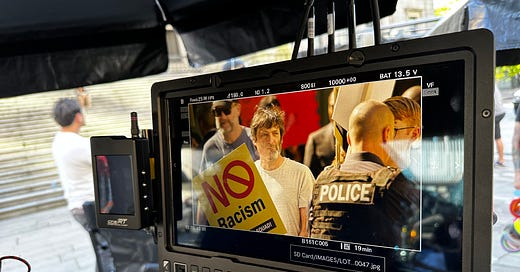Not too long ago we wrapped up Season 1 of The Irrational with an episode on “Reciprocity” – which not only exposed some interesting truths behind murders but, in typical fashion for this NBC show, left us hanging. Good thing Season Two is coming to the rescue on October 8th on NBC.
Let’s rewind what happened in Season 1…
The Irrational is loosely based on my life and academic research. That’s why Alec Mercer–my cinemagenic alter-ego–applying his social science expertise to solve all kinds of issues – and using phrases that sound as if they were my own (and some are):
“People are irrational, but predictably so.”
Alec, Episode One
Doesn’t this sound familiar?
Anyways. It is no wonder Alec also broaches some of my key personal interests: tackling corporate corruption, addressing psychological manipulations in the media, and solving ethical dilemmas in law enforcement. In Episode One, he investigates the murder of a fashion influencer whose boyfriend, a soldier, not to mention the son of a senator, has confessed to the crime. As he does this, he hints at social science concepts that I discuss in my books such as reciprocity, paradoxical persuasion, the cocktail party effect, and the fallibility of memory.
The remaining episodes follow related patterns, with each depicting human psychology (and behavioral economics) in action. In Episode 2 an investigative journalist who’s been poisoned with a substance (that’s commonly used to kill Russian spies) reaches out to Alec, requesting his help. The episode dives into inattentional blindness and revenge, once again alluding to key terms like curiosity, misdirected attention, fatal narcissism, and the power of free. Episode 3 witnesses the crashing of a passenger plane, alluding to retrospective framing, confirmation bias, and cognitive closure, among others; while Episodes 4 and 5 take on a kidnapping case and solve a gambling mystery before it’s too late, highlighting concepts like the absurdism, anchoring, zero-sum bias, outcome bias, and switch tracking. As the season unrolls, viewers not only peek into human nature but become privy to Alec’s personal struggles with PTSD–a result of his accident much like my own–and his complex relationships with his ex-wife and colleagues.
As we await Season 2, it’s only rational to be asking what psychology will play out in Season 2. I know the answers to these because I am deeply involved in the show, but I also have a question of my own. In Season 1 I had a cameo, and I was also a background artist in Season 2, but I still have no idea if they will include me in the final episode or if they will edit me out?
Looking forward to this season.
Irrationally yours,
Dan Ariely






